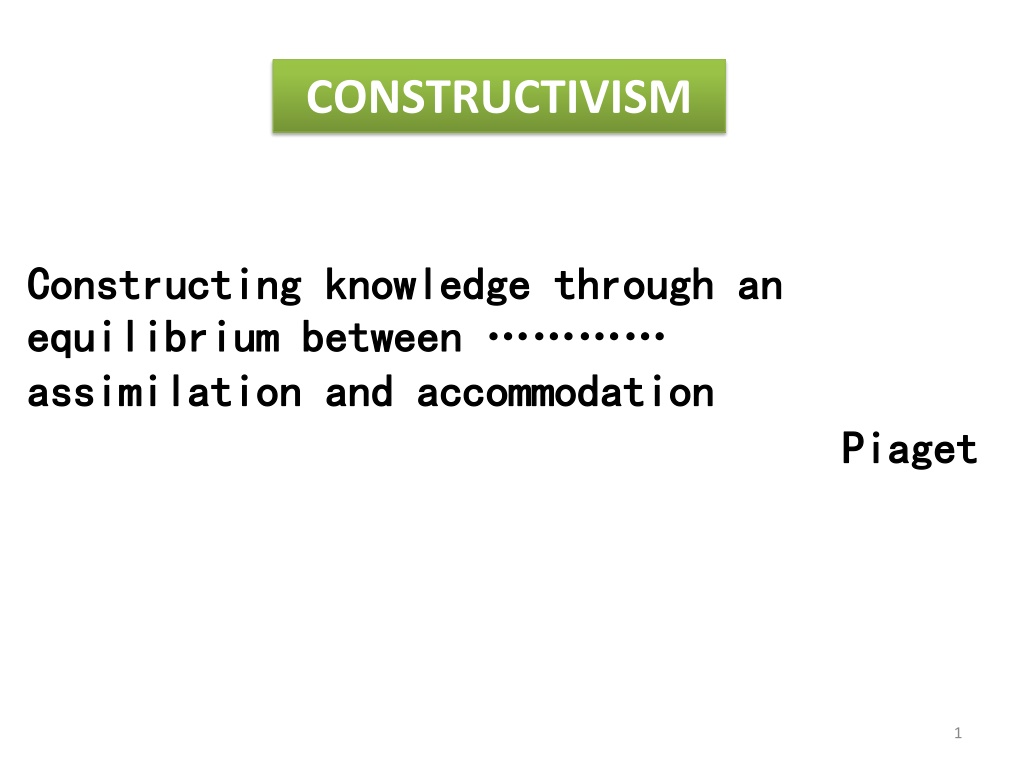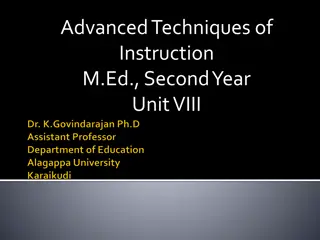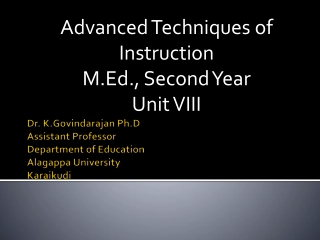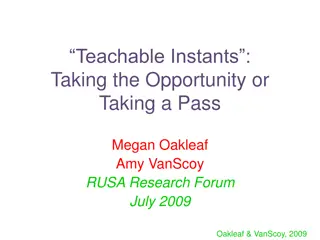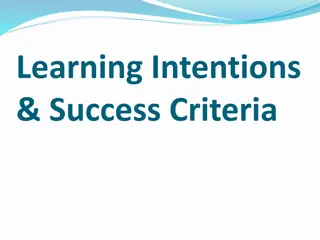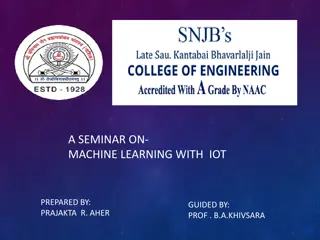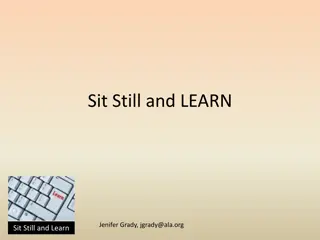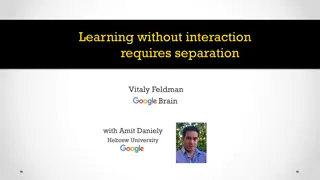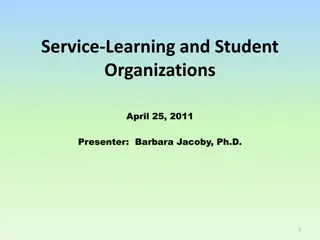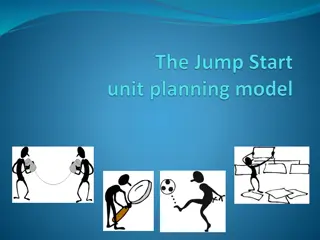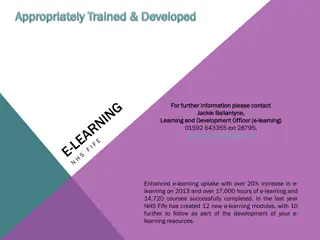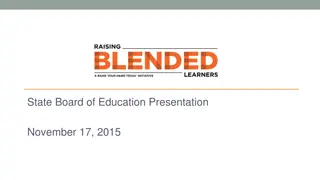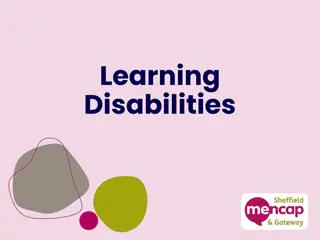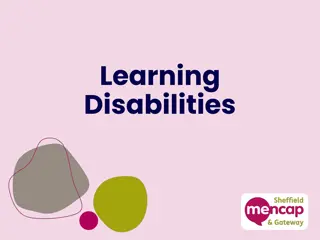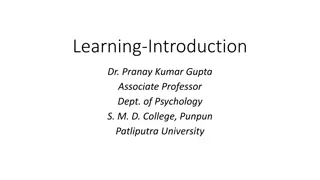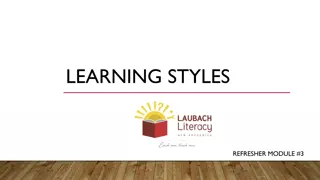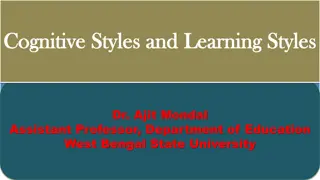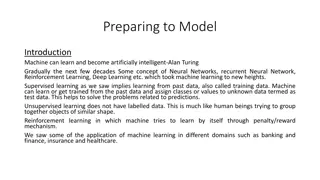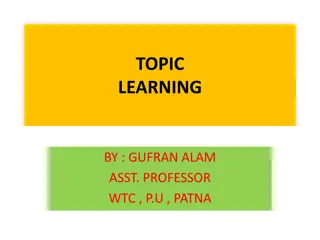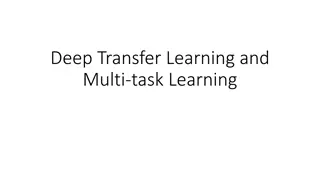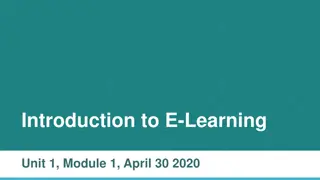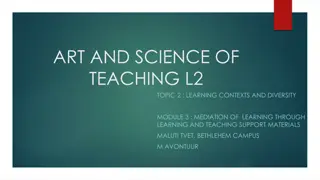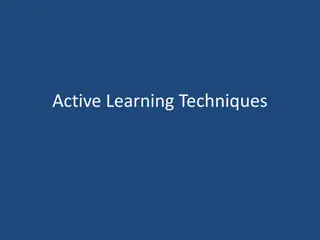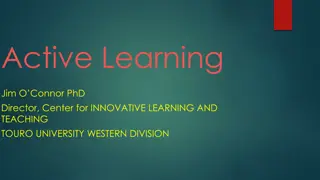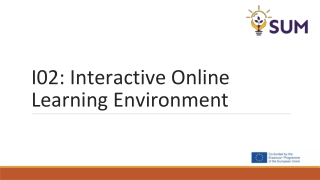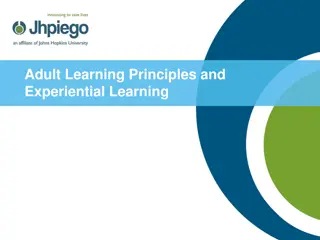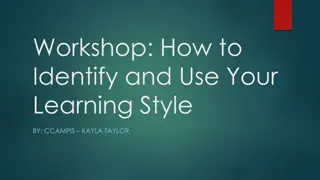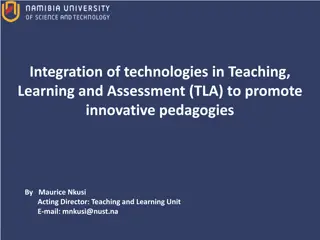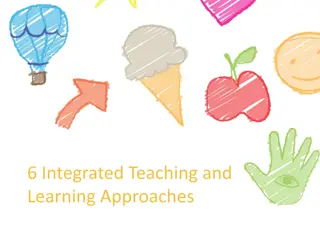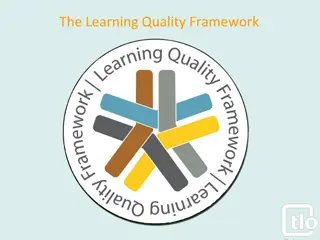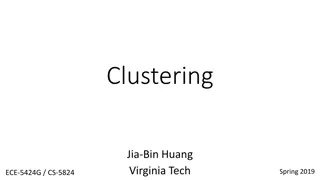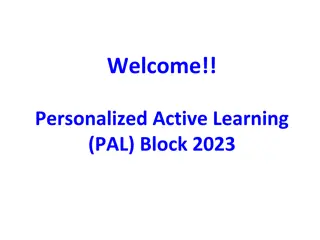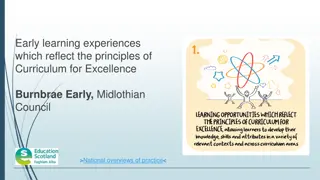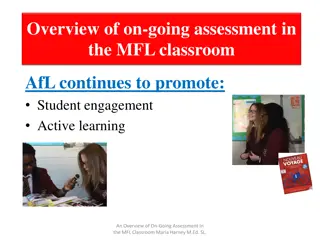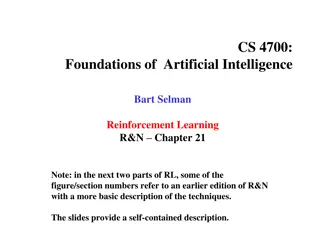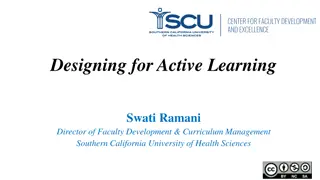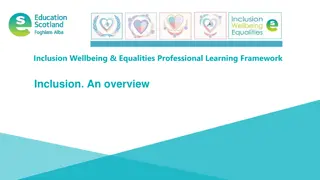Understanding Constructivism in Learning
Constructivism is a philosophy of learning that emphasizes the active process of constructing knowledge through a balance of assimilation and accommodation. Learners create their own understanding by reflecting on experiences, engaging in active learning, using language, social interaction, and contextual knowledge. Teachers play a facilitative role in encouraging exploration, explanation, elaboration, and evaluation to enhance learning outcomes.
Download Presentation

Please find below an Image/Link to download the presentation.
The content on the website is provided AS IS for your information and personal use only. It may not be sold, licensed, or shared on other websites without obtaining consent from the author. Download presentation by click this link. If you encounter any issues during the download, it is possible that the publisher has removed the file from their server.
E N D
Presentation Transcript
CONSTRUCTIVISM Constructing knowledge through an Constructing knowledge through an equilibrium between equilibrium between assimilation and accommodation assimilation and accommodation Piaget Piaget 1
CONSTRUCTIVISM Meaning Constructivism is a philosophy of learning founded on the premise that, by reflecting on our experiences, we construct our own understanding of the world we live in. Brooks and Brooks 2
Principles of CONSTRUCTIVISM Learning as an active process Learning to learn http://www.presentermedia.com/index.php?t arget=closeup&maincat=animsp&id=9362 3
Principles of CONSTRUCTIVISM Learning involves language http://www.gehlencatholic.com/academics.cf m?subpage=1539458 4
Principles of CONSTRUCTIVISM Learning is a social activity http://resources.prufrock.com/tabid/56/articl eType/CategoryView/categoryId/38/Gifted- Education.aspx 5
Principles of CONSTRUCTIVISM Learning is contextual http://ualbertaschool.wordpress.com/author/ ualbertaschool/ 6
Principles of CONSTRUCTIVISM Learner needs knowledge to learn. We Knew what shape it is. We could do it!!!! http://ualbertaschool.wordpress.com/author/ ualbertaschool/ 7
Principles of CONSTRUCTIVISM Learning needs time. http://ualbertaschool.wordpress.com/author/ ualbertaschool/ 8
Teachers task as a facilitator Allowing and encouraging multiple intelligence Allowing students to take the responsibility of own learning Using peers as resources Encouraging to apply new knowledge 9
5 Es of CONSTRUCTIVISM ngage E ENGAGE E xplore E xplain EVALUATE EXPLORE E laborate valuate E ELABORATE EXPLAIN 10
ENGAGE (on the basis of What they already know ) Engaging activities for connecting known to unknown Focus on the learning of the current situations Combination of Hand-on and minds-on experience Introduction of context. 11
EXPLORE (How of What they need to know) Common base of experience Identifying learning concepts, ideas from the context. Equilibrium process of merging old knowledge with the new Hands-on experience of reconstruction of identified concept. 12
EXPLAIN(clarification of new terms) Link between context and content Teacher s role Cognitive construction of knowledge 13
Elaborate (Apply and re confirm new knowledge.) Reinforcement and remedy specific instructional task to showcase understanding Application of gained knowledge in a new similar situation. 14
EVALUATE Instructor Peer Self http://web.wnlsd.ca/rocketry/teachers.htm 15
Reference: http://imaginationsoup.net/2011/01/what- is-a-constructivist-classroom/ 16
